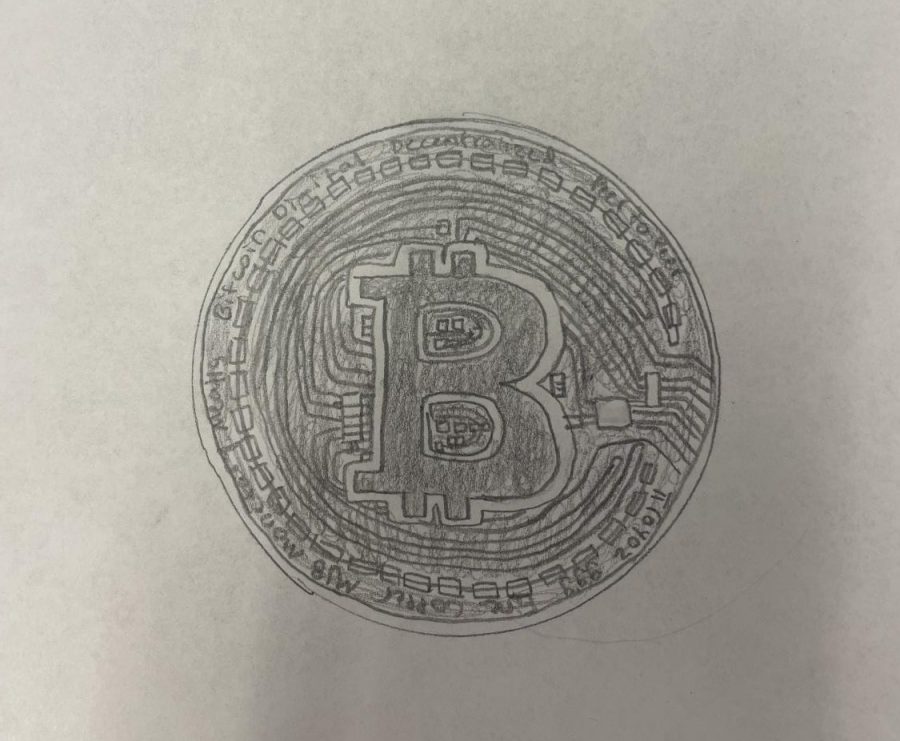The Crypto-Craze: The Myths and Merits of Cryptocurrency
October 28, 2021
Bitcoin, Stellar Lumens, Ethereum, you name it — cryptocurrency is the new buzz word around high school and college campuses; however, it is often misunderstood and misused in conversations by students. It’s about time the “curtain is drawn back” on cryptocurrency and go back to the basics.
What is cryptocurrency?
As defined by Oxford dictionary, cryptocurrency is a digital currency in which transactions are verified and records maintained by a decentralized system using cryptography (secure communication systems), rather than by centralized authority. In other words, cryptocurrency purchases are monitored by a cryptographic system — making units of currency virtually impossible to counterfeit or double-spend according to Jake Frankenfield of Investopedia. Computer programs, not financial institutions, are responsible for monitoring these transactions.
Most cryptocurrencies utilize blockchain software. Blockchain is a style of database where pieces of data are stacked into “blocks” or “towers”, and are then chained together at each end (hence the very clever name). In blockchain databases, information is immutable, meaning all data entered into the system cannot be reversed.
One large drawback of this decentralized system, however, is that no financial institution is involved and thus no regulations. A secondary drawback of this feature is that these currencies (Bitcoin, Stellar Lumens, etc.) do not replace the U.S. dollar in a large majority of eCommerce transactions.
Why is it so popular?
According to Frederick Kaufman, a professor and author of new book The Money Plot: A History of Currency’s Power to Enchant, Control, and Manipulate, the COVID-19 pandemic has enhanced the demand for security, especially financial security. Additionally, “cryptos play the role of primitive amulets, particularly those that have no value whatsoever … yet still promise to deliver good fortune.” Essentially, the mystique given to cryptos gives them an apparent value, rather than their actual value.
Hype around cryptocurrency has also been encouraged by social media activity, as online forums have bolstered its popularity. Platforms such as Reddit host a variety of channels for topics anyone can contribute to, including pages on crypto. The Bitcoin page alone has over 3 million members!
Mr. Gregory Pascucci, an economics teacher here at West Boca, has also noticed this trend amongst his students. “I remember first hearing about [crypto] when I was teaching at Boynton High in 2011 … I had a student who brought it up.”
He also feels that the market for cryptocurrency is booming as a result of social media. “Some of our economic trends — because of COVID and inflation, not to mention social media — [crypto] has been taking a huge ride … with people like Elon Musk tweeting about things like Bitcoin and Dogecoin and Jack Dorsey (CEO of Twitter) investing billions into crypto.”
What does this mean for the future?
Although the monetary aspect of cryptocurrency is fascinating, the real potential lies in the blockchain technology that powers it. Think of it — encrypted social media posts, more secure consumer payment options, and new methods of digital marketing — all resulting from the obsession over a meme dog on a coin!
Pascucci recommends that those interested in cryptocurrency download the Coinbase app, an online resource that educates users about crypto while helping them invest in this mysterious yet captivating currency. May today’s “bucks” be tomorrow’s Bitcoins!












































